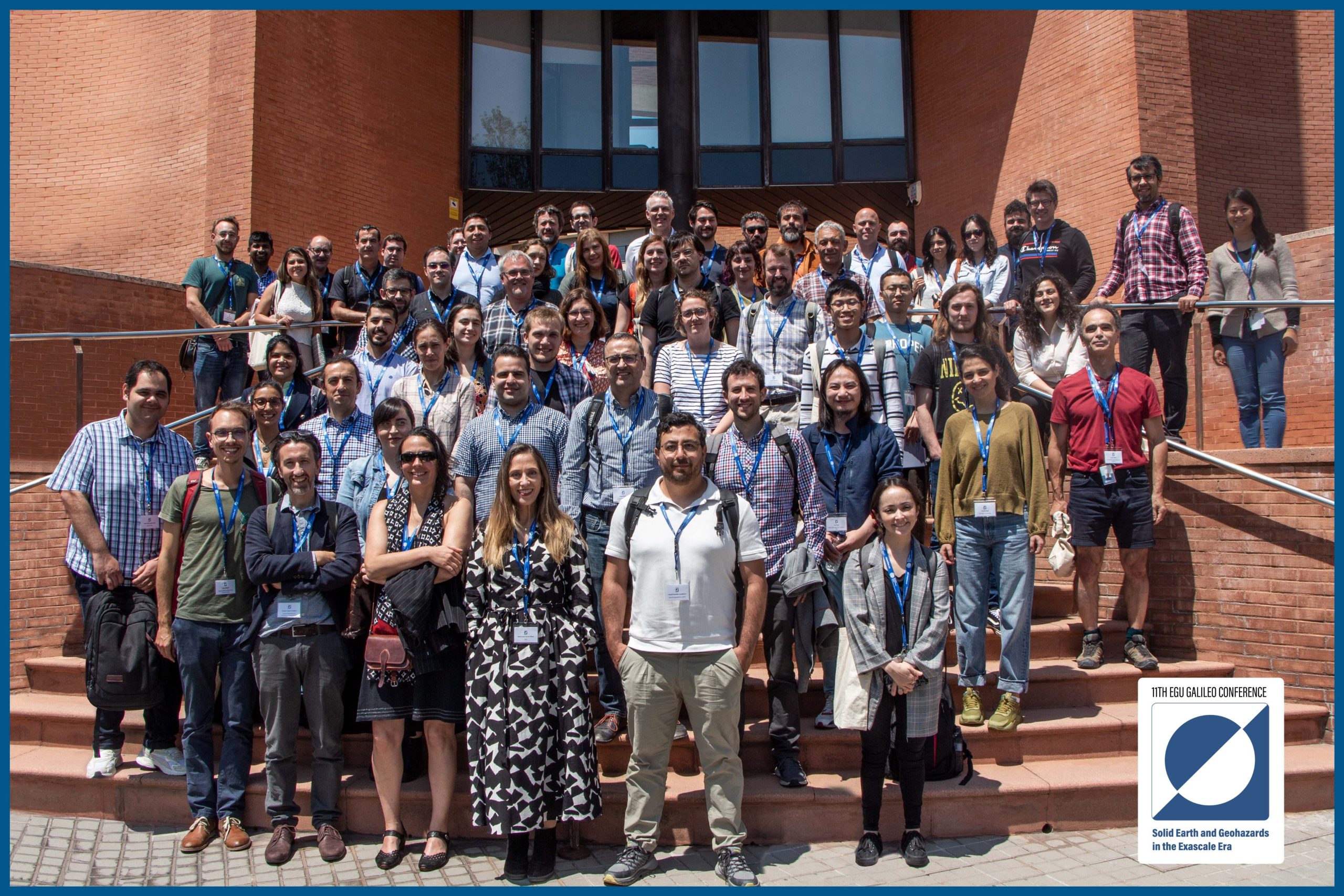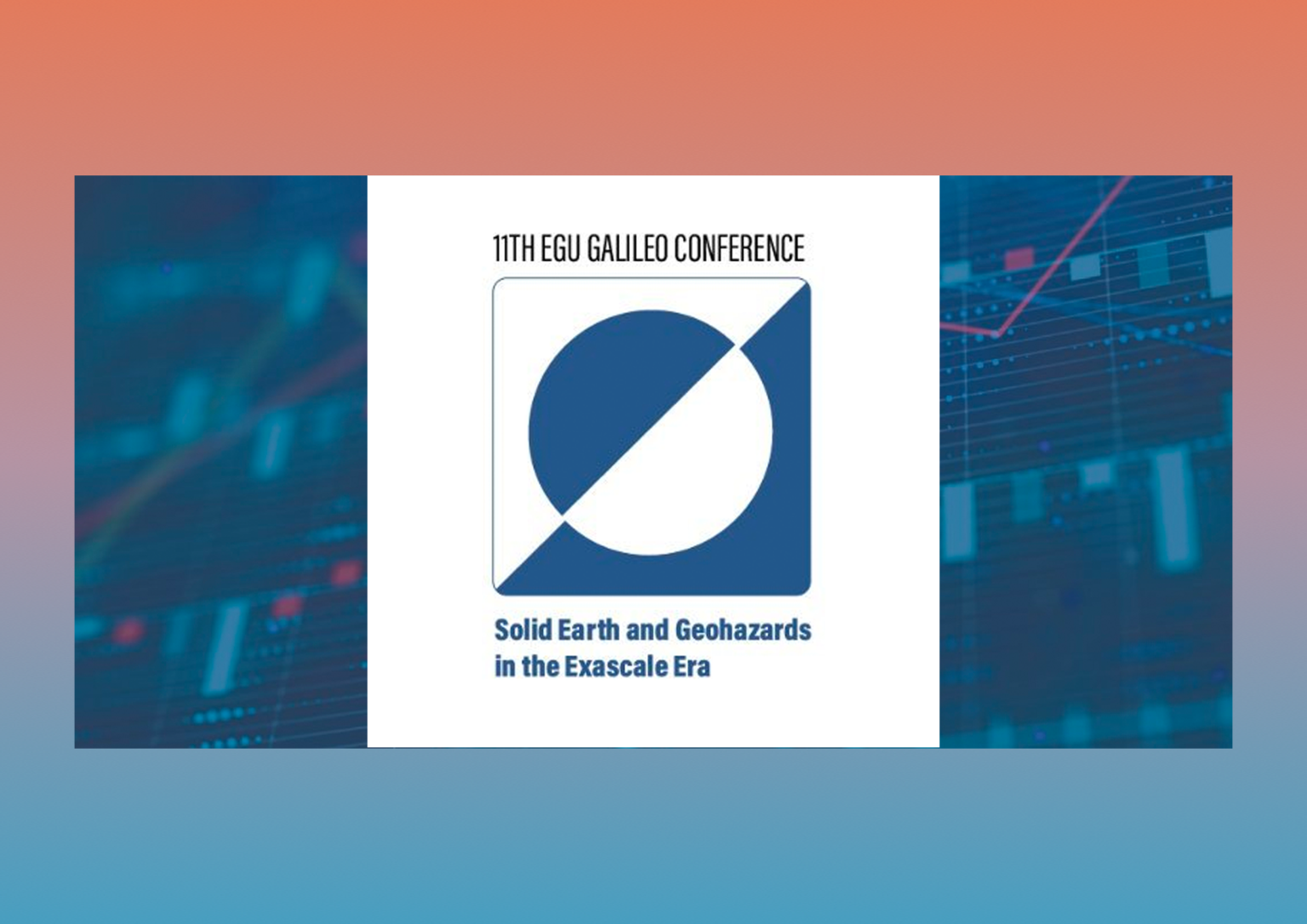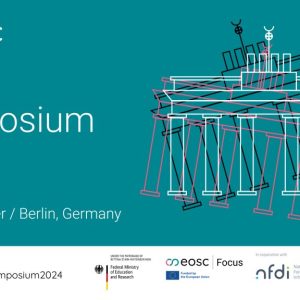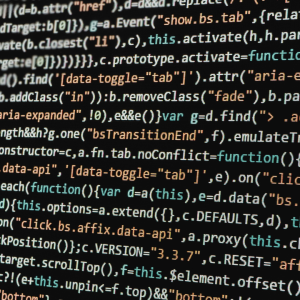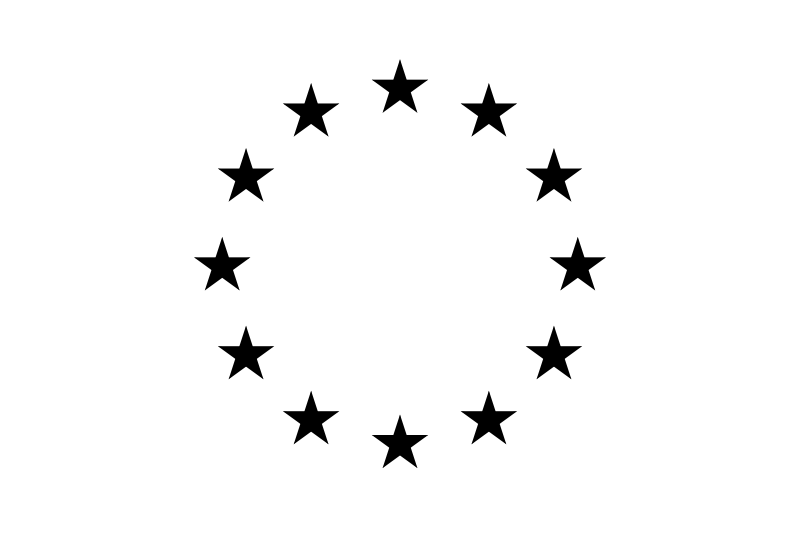Sebastian Noe (ETH) presents the poster “Collaborative Seismic Earth Model” at the 11th EGU Galileo Conference.
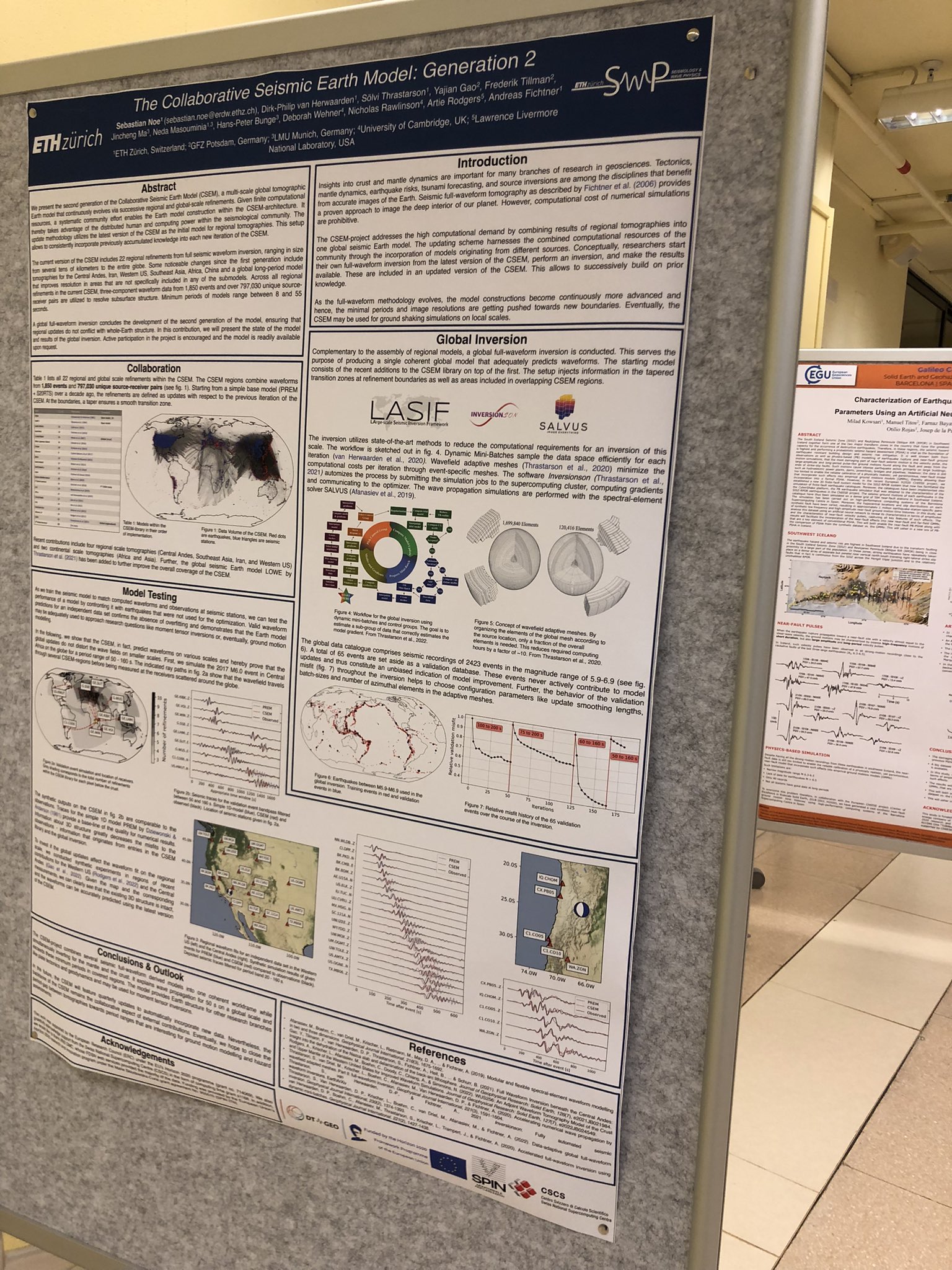
The “Solid Earth and Geohazards in the Exascale Era” conference aims to unite some of the world’s foremost minds in various branches of computational geosciences to collectively address the challenges posed by Exascale computing. Europe is taking substantial strides in the global race to Exascale, with significant investments in infrastructure and application pillars. In 2023, the EuroHPC Joint Undertaking will have deployed 3 Pre-exascale machines, with 2 Exascale systems to follow.
From a scientific and service perspective, this unprecedented pan-European infrastructure presents numerous opportunities. However, the transition is complex and necessitates a collaborative effort from scientists, software developers, and data analysts.
The conference will revolve around four sessions designed to facilitate idea exchange and brainstorming on trending topics:
- Preparation and optimization of HPC codes to Exascale (S1)
- Edge-to-end data workflows (S2)
- State-of-the-art in computational geosciences (S3)
- Horizon Europe and EuroHPC Policies (S4)
Ultimately, the conference aims to produce a consensus-driven white paper outlining the vision and roadmap for our community’s journey into the Exascale era. In addition to these sessions, the conference program includes master classes aligned with the session topics to provide training for early-career scientists. These classes offer a platform for young researchers to present and discuss their projects and results with senior scientists.
